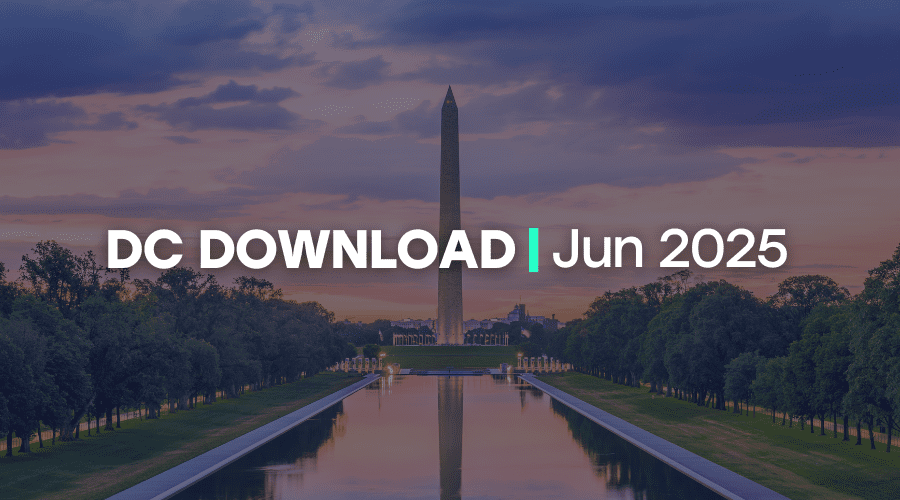Believe it or not, January 2021 has turned out to be more hectic than the last months of 2020 — with the Georgia Senate runoff election and Democrats solidifying control of both chambers of Congress, the shameful Capitol insurrection, a second presidential impeachment, and the start of the Biden-Harris administration all happening in the same month. But fear not, here is an overview of the latest legislative issues impacting nonprofits during these challenging times:
President Biden Releases Rescue Plan
On January 14, President Joe Biden announced the $1.9 trillion American Rescue Plan, the first step in a two-step plan of rescue and recovery. The plan includes more than $400 billion to combat the pandemic through a national vaccination program, increased testing and tracing, and additional funding to help schools reopen safely, along with $350 billion in funding to state and local governments experiencing budget shortfalls. It also includes $1,400 direct payments, enhanced unemployment benefits, federally mandated paid leave, and various other supports for individuals, small businesses, and communities.
President Biden’s rescue plan leaves out some of the #Relief4Charities priorities to grant relief and economic recovery for nonprofits. The plan does not include any specifics on the expansion and extension of charitable giving incentives, and is silent on increasing the reimbursement percentage for nonprofits who pay unemployment insurance.
On funding for small business, Biden’s plan includes $15 billion in flexible, equitably distributed grants. It is unclear if these grants will also apply to nonprofits. The plan gives no specifics as to how much money would be applied to the Paycheck Protection Program (PPP) vs. Economic Injury Disaster Loans (EIDL). Nor does it speak to the requirements that nonprofits and small business need to fulfill to access this funding.
Biden’s rescue plan includes the addition of $35 billion government funds for successful state, local, tribal, nonprofit, and small business financing programs. But because these are loans, they are unlikely to meet nonprofit needs.
On January 22, 75 nonprofits sent a letter to President Biden and congressional leadership urging them to recognize the unique role of charitable nonprofits in providing pandemic relief and economic recovery by enacting solutions tailored to the needs and realities of these organizations that are devoted to serving the public good.
President Biden Signs Executive Orders
In his first days in office, President Joe Biden signed multiple executive orders related to the COVID-19 response, climate change, and immigration. Among these executive actions, some are of special interest for the nonprofit community. On the day of his inauguration, President Biden issued an executive order on advancing racial equity, which also rescinds a previous executive order (EO 13950) banning various diversity trainings by agencies and nonprofit contractors. On January 26, he signed four executive orders on racial equity, covering issues as diverse as federal housing laws, communication with Native American tribes, combatting xenophobia, and criminal justice reform.
Additionally, President Biden directed the Acting Secretary of Education to extend the pause on federal student loan payments and collections and keep the interest rate at zero percent until September 30, 2021. Congress passed the CARES Act in March of last year, which suspended federal student loan payments through September 2020. The benefit was extended by the year-end COVID-19 bill through January 31, 2021.
Nonprofit Job Loss Reported
As reported by Johns Hopkins Center for Civil Society, the month of December saw a loss of nearly 51,000 nonprofit jobs. As of December 2020, the nonprofit workforce remained down by nearly 930,000 jobs compared to estimated pre-COVID February 2020 levels, representing a 7.4% decline from its pre-pandemic level. These lost jobs include 36.6% of all workers in nonprofit arts and entertainment organizations; 15% of nonprofit education workers; over 9% of all workers in nonprofit religious, grant-making, and civic associations; 9% of workers in nonprofit social service institutions; and 3% of nonprofit health care workers.
Democrats Control the Senate
Democrats won control of the Senate after Raphael Warnock and Jon Ossoff won the Georgia runoff election on January 5, defeating former Republican senators Kelly Loeffler and David Perdue. Georgia’s two new Democratic senators were sworn in on January 20, confirming a 50-50 split, with Vice President Kamala Harris serving as the tiebreaking vote in her new role as president of the Senate. On January 25, Senate Minority Leader Mitch McConnell (R-KY) and Majority Leader Chuck Schumer (D-NY) finally reached a power-sharing agreement that includes protection of the filibuster. The lack of agreement had been an impediment to business in the Senate and, without an organizing resolution, Republicans have technically remained in control of most Senate committees. Now, Democrats can go ahead with the business of the majority and organize Senate committees.
Independent Sector Submits Public Comments About Form 990
On January 11, Independent Sector submitted public comments to the Internal Revenue Service (IRS) on improving access and reporting of Form 990 electronic data, and enhancing the accuracy of reporting government revenue.



